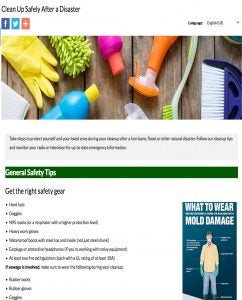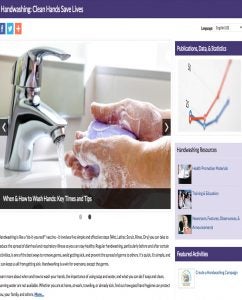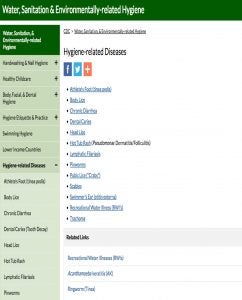Hygiene and Sanitation
The maintenance of personal hygiene and a sanitary environment are the biggest priorities after a disaster. Being clean is the best way to prevent yourself from getting ill during this time. Washing hands, brushing teeth and taking showers are our first line of defense against diseases, but finding clean, safe running water can sometimes be a challenge during an emergency such as a hurricane or flood.
Hand washing is like a “do-it-yourself” vaccine. Hand washing with soap and water is a common way to reduce the number of germs on them. If soap and water are not available, use an alcohol-based hand sanitizer that contains at least 60 percent alcohol. Alcohol-based hand sanitizers can quickly reduce the number of germs on hands in some situations, but sanitizers do not eliminate all types of germs. Particularly, if hands are visibly dirty, hand sanitizers are less effective.
Keeping food and water safe will help prevent illness and possible food poisoning. Throw away any food that may have come in contact with flood water. Because of the power disruption, food that was kept in the refrigerator or freezer may not be suitable for consumption. Any food with unusual odor, color or texture must not be consumed and should be disposed properly.
East Carolina University has accumulated the following resources for dealing with issues related with hygiene and sanitation after natural disasters.








